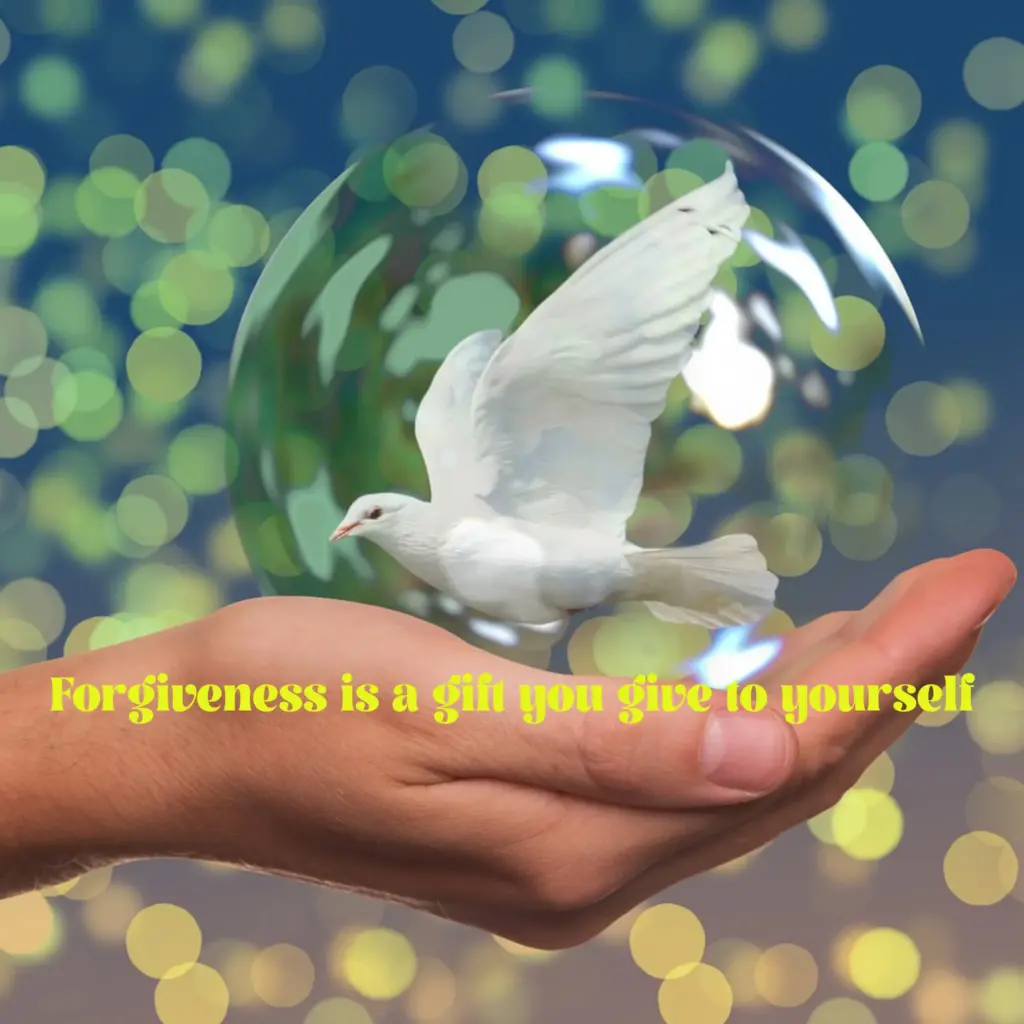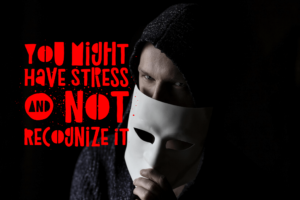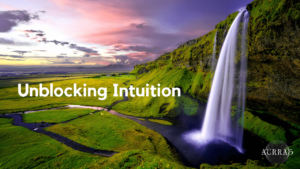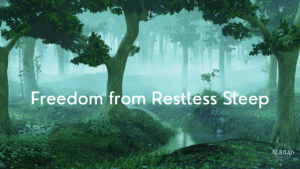Forgiveness is tricky and it’s hard to do. Assuming your ego isn’t so big that you don’t have to deal with that, it can be difficult to traverse the terrain of damaged trust and misplaced values along with deeply hurt emotions. Yes, as emotions go, to forgive someone or even yourself when they’ve done you wrong is the Mount Everest of things to overcome.
Yet, the free rent of negativity that is taking up space in your emotional, mental, and spiritual energy at some point needs to go. It’s unhealthy and you can use that energy for better, more productive things.
Forgiveness can be difficult for many reasons, including:
- Anger: Holding onto anger can make it hard to forgive, even if the person who hurt you has apologized. Anger can be toxic and can hurt you more than the person who hurt you.
- Fear of being hurt again: People may use anger to protect themselves from getting hurt again.
- Selfishness: Some people may feel entitled to preferential treatment and believe they deserve to be treated well.
- Resentment: Holding onto blame and resentment can make you bitter and fearful.
- Not feeling understood: Forgiveness can be misunderstood in a culture that expects actions to follow feelings.
- Effects on relationships: Not forgiving can strain relationships, making it hard to trust others, and leading to communication breakdowns.
- Holding on to a grudge
- Believing that fairness and justice must be served
- Thinking that forgiving will excuse the behavior that caused pain
- Not forgiving someone to feel sorry for yourself
- Not forgiving someone to gain attention from others
Self-forgiveness can be difficult for many reasons, including:
- Low self-esteem
- Being self-critical
- Growing up in an environment of criticism or abuse
- Conditions like impostor syndrome, obsessive-compulsive disorder (OCD), or depression
- Binary sense of right and wrong
- Powerlessness
- Rumination
- Cognitive biases
According to Dr. Luskin, there are two hallmarks of forgiveness. One is that when you tell the story of what happened to you, you don’t get upset. It no longer makes you feel frustrated, angry, or scared. The other hallmark of forgiveness is experiencing a sense of peace, even in relation to the person who wronged you (or yourself, as an act of self-forgiveness).
What Forgiveness Is Not
In trying to understand forgiveness, it’s also important to know what forgiveness is not, says Dr. Enright. “It’s not excusing what the other person did. What happened was unfair and it will always be unfair,” he adds, emphasizing that forgiveness is a response to what happened; it’s not saying that what happened is okay. He also notes that forgiveness does not mean forgetting about what happened. Forgiveness is also not always about reconciliation. “You can forgive while keeping your distance,” Dr. Enright explains, adding that it’s 100% possible to seek justice while forgiving at the same time. “As a moral virtue, forgiveness lives side-by-side with seeking fairness,” he says.
The Benefits of Practicing Forgiveness
Even if you don’t think of forgiveness as a moral virtue or “the right thing to do,” there are many reasons to practice it. Scientific studies have shown that practicing forgiveness can benefit mental health as well as physical health.
Mental Benefits of Practicing Forgiveness
- Less Anxiety: Not forgiving someone can be mentally taxing. Anytime you think about [what happened and the person you haven’t forgiven], your body experiences stress. When you forgive, the body lets go of the stress it’s feeling. Scientific studies back this up, showing that levels of adrenaline and cortisol (also known as the “stress hormone”) go down when one practices forgiveness.
- Reduced Depression: Studies show a connection between being unable to forgive and higher rates of depression. Forgiveness has been linked to a lowered risk of depression, higher satisfaction with life, and greater social support.
- Hope and Empowerment: Some people may not want to forgive because they believe it means relinquishing power to the person who wronged them. However, the long-term outlook is the opposite. When someone decides to forgive, they feel more hopeful and empowered about life. When you don’t forgive, you are letting the other person have power over you, because it changes who you are on the inside. But when you forgive, you take that power back.
Physical Benefits of Practicing Forgiveness
- Good for Your Heart: A 2007 scientific study suggests that forgiveness may be linked to lower blood pressure levels. Additionally, a 2009 study indicates that forgiveness may be effective at reducing anger-induced myocardial ischemia (a lack of blood flow to the heart) in people with coronary artery disease.
- Better Sleep: Studies show that practicing forgiveness—towards yourself and others—is linked to better sleep. Unforgiving feelings can raise cortisol levels in the brain, which activates the fight-or-flight response, making it harder to sleep.
- Supports the Immune System: A 2014 study found that self-compassion, which often encompasses forgiveness, was associated with lower levels of stress-induced inflammation. Inflammation is often a precursor to chronic disease, so the less inflammation in the body, the better you are likely to feel.
Clearly, forgiveness has immense benefits, but it isn’t always easy to do.
10 Ways to Practice Forgiveness for Yourself and Others
- Practice Gratitude: Instead of focusing on ways you’ve been wronged, your attention shifts to everything that’s gone right, and forgiveness comes easier from this mindset.
- Grieve: Being able to forgive doesn’t happen overnight, especially if what happened to you was a deep injustice. Before forgiveness is possible, it’s important to grieve.
- Change the Focus of What Happened: Instead of focusing solely on the injustice, try to find meaning in what happened; often something profoundly good can come from a bad situation. While forgiveness does not excuse what happened or make it right, it can help you to control the narrative, giving a better, more meaningful ending to the story.
- Take a Few Deep Breaths: Feelings of unforgiveness may activate the fight-or-flight response in the brain. Taking slow, deep breaths can help regulate that response and calm the body down.
- Consider How Not Forgiving Is Affecting Your Life: If you are hesitant to forgive, ask yourself: How is not forgiving yourself or others affecting your life? Are you having trouble sleeping? Is it causing you anxiety or depression? Do you feel angry or irritated all the time? Think of what you may have to gain from forgiveness.
- Consider the Ways the Other Person Has Been Wronged: Compassion goes hand-in-hand with forgiveness. Think of what could have caused a person to act a certain way.
- Remember the Person’s Good, or Neutral, Qualities (or Your Own Good Qualities): “The person who hurt you is more than that injustice,” explains Dr. Enright.
- If You Are Spiritual, Consider Forgiveness’s Role in Your Spiritual Life: Because forgiveness as a moral trait is embedded into many religions, if you are a spiritual person, remembering forgiveness’s role in your faith can make it easier to forgive others and yourself.
Sound Healing and Meditation for Forgiveness
Integrating sound healing and meditation into your forgiveness journey can be immensely helpful. Sound healing uses vibrational frequencies to balance and heal the mind and body. By participating in sound healing sessions, individuals can experience deep relaxation, which aids in releasing negative emotions and fostering forgiveness.
Meditation can enhance self-awareness and emotional regulation. Through regular meditation practice, individuals can cultivate a sense of peace and acceptance, making it easier to let go of grudges and practice forgiveness. Combining these practices creates a holistic approach to emotional healing, supporting both mental and physical well-being.
In conclusion, forgiveness is a powerful tool for improving both mental and physical health.
By understanding what forgiveness is and what it is not, and by practicing specific techniques, you can learn to forgive others and yourself, ultimately leading to a more peaceful and empowered life.







